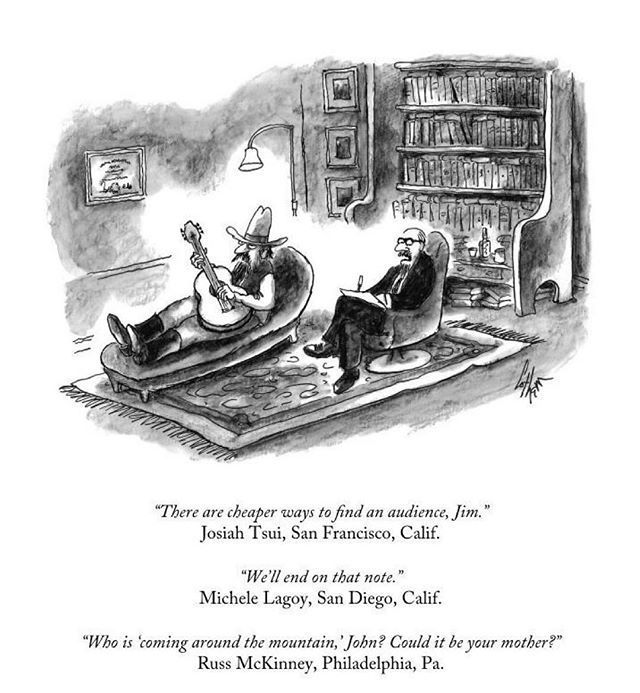

So how did McGraw et al come to their conclusions? First, they had to figure out what data they could glean from the captions. "That would be a grave mistake which would only be justified if we could make a lot of money out of it." "I can say with certainty that we shouldn't compromise our research ethics by generalizing the results beyond this particular caption contest to all the other 283 contests, or, for that matter, to non-caption-contest New Yorker cartoons, or to humor in general," Mankoff said in his response on McGraw's blog post about the caption contest findings. Some constructive advice: If you’re going to write a blog, know what you’re talking about–or at least try to look like you do.The results of the study weren't shocking, said Robert Mankoff, The New Yorker's cartoon editor. All you’d have to do is read all the cartoons of any issue of The New Yorker to know that most of them are not of any great moment at all they’re just fun, like all the ones that win the contest. If that is really your thinking, then it would appear you’ve read as few of the magazine’s “actual” cartoons as you have its contest winners. Finally, if your basic premise is that every “actual” New Yorker cartoon is both clever and in some way an “important” statement, you’re just plain wrong. (If you need some examples of undeniable failures, see Peter McGraw’s “Why Aren’t The New Yorker’s Cartoon’s Funnier?” online.) By contrast, absolutely every contest winner (not to mention hundreds of also-rans) has succeeded in the cleverness department.

To begin, do not paid New Yorker cartoonists always attempt, at least, to make their drawings and their captions match in cleverness? And think of the myriad times when the magazine’s professionals have utterly failed in achieving even this basic goal. I’m at a loss to understand why being “very clever responses to the drawing– nothing more” categorically excludes New Yorker caption contest winners from the level of “actual” New Yorker cartoons. Without further ado, here is 5-time New Yorker Caption Contest winner Lawrence Wood’s top ten winners of the New Yorker Caption Contest:Īnd last, but not least, November 15, 2010: Here’s my evidence …Īnd here he lists his top ten caption contest winners, followed by a list of about 40 other great winners all from various issues over the past 9 years or so. The winners of caption contests come off as very clever responses to the drawing – nothing more.” That’s certainly true of some-and of most of the ones I submit (including the ones that have been selected as finalists)-but I think many of the winning captions “rise to the level of actual New Yorker cartoons,” and some, I would argue, are among the best The New Yorker has ever published. You wrote, “The results rarely, if ever, rise to the level of actual New Yorker cartoons. I have to disagree with your comment about The New Yorker Cartoon Caption Contest. Wood’s good-natured rebuttal, he included a list of 50 or so of the best caption contest winners going all the way back to contest #10 from the Augissue. Lawrence Wood, on the other hand, has had a great deal of experience with The New Yorker’s caption contest, including what seems to be an encyclopedic knowledge of past winners. To be honest, I had never paid much attention to the caption contest, my focus being on my competition in the interior of the magazine. The winners of caption contests come off as very clever responses to the drawing – nothing more.” This based on having seen only a handful of winners. In my last blog post, while referring to the New Yorker caption contest, I blithely stated: “The results rarely, if ever, rise to the level of actual New Yorker cartoons. Lawrence Wood, 5-time New Yorker Caption Contest winner and reigning champion, took me to task recently for my comments on the nature of cartoon caption contests (“ Cartoon Caption Contest Febru– July 26, 2014“).


 0 kommentar(er)
0 kommentar(er)
